Reminiscing
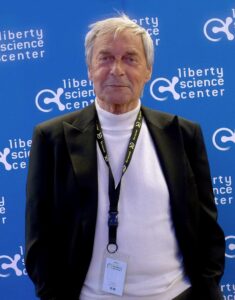 Erno Rubik is a name that is known worldwide…well, maybe not the name Erno, but certainly the name Rubik. Erno Rubik Jr was born on July 13, 1944, in Budapest, Hungary, to Erno Rubik Sr, a flight engineer at the Esztergom aircraft factory, and Magdolna Szántó, a poet. He was born during World War II and has lived all of his life in Hungary. He credits his father as his inspiration for his successes. The younger Rubik became famous for inventing the Rubik’s Cube and other puzzles, but his work isn’t all about puzzles. In fact, much of his recent work involves the promotion of science in education. Rubik is also involved with several organizations such as Beyond Rubik’s Cube, the Rubik Learning Initiative, and the Judit Polgar Foundation. All of these organizations aim to engage students in science, mathematics, and problem solving at a young age.
Erno Rubik is a name that is known worldwide…well, maybe not the name Erno, but certainly the name Rubik. Erno Rubik Jr was born on July 13, 1944, in Budapest, Hungary, to Erno Rubik Sr, a flight engineer at the Esztergom aircraft factory, and Magdolna Szántó, a poet. He was born during World War II and has lived all of his life in Hungary. He credits his father as his inspiration for his successes. The younger Rubik became famous for inventing the Rubik’s Cube and other puzzles, but his work isn’t all about puzzles. In fact, much of his recent work involves the promotion of science in education. Rubik is also involved with several organizations such as Beyond Rubik’s Cube, the Rubik Learning Initiative, and the Judit Polgar Foundation. All of these organizations aim to engage students in science, mathematics, and problem solving at a young age.
All his life, the younger Rubik displayed artistic abilities. He attended the Secondary  School of Fine and Applied Arts, from 1958 to 1962, specializing in sculpture. He attended the Budapest University of Technology from 1962 to 1967, where he also became a member of the Architecture Faculty. He then attended the Hungarian Academy of Applied Arts and was in the Faculty of Interior Architecture and Design from 1967 to 1971. While a professor of design at the academy, Rubik pursued his hobby of building geometric models. One of these became the prototype of his cube. It was made of 27 wooden blocks, with seems common to Rubik’s Cube experts of today, but when it was built, it actually took Rubik a month to solve the problem of the cube!! Go figure!! As of June 2018, the world record for solving the Rubik’s Cube is 4.22 seconds.
School of Fine and Applied Arts, from 1958 to 1962, specializing in sculpture. He attended the Budapest University of Technology from 1962 to 1967, where he also became a member of the Architecture Faculty. He then attended the Hungarian Academy of Applied Arts and was in the Faculty of Interior Architecture and Design from 1967 to 1971. While a professor of design at the academy, Rubik pursued his hobby of building geometric models. One of these became the prototype of his cube. It was made of 27 wooden blocks, with seems common to Rubik’s Cube experts of today, but when it was built, it actually took Rubik a month to solve the problem of the cube!! Go figure!! As of June 2018, the world record for solving the Rubik’s Cube is 4.22 seconds.

The Rubik’s Cube proved to be a useful tool for teaching algebraic group theory, and in late 1977 Konsumex, Hungary’s state trading company, began marketing it. From there, in 1980, the Rubik’s Cube went global. It was marketed throughout the world, and over 100 million authorized units, with an estimated 50 million unauthorized imitations, were sold, mostly during its subsequent three years of popularity. I guess you could say that Erno Rubik had arrived!! Approximately 50 books were published describing how to solve the puzzle of Rubik’s Cube. Following his cube’s popularity, Rubik opened a studio to develop designs in 1984. One of the products that came out of that studio was another popular puzzle toy, Rubik’s Magic.
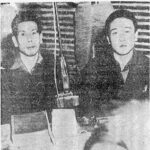
 When a soldier is told to guard an area for his country, he does just that, but on this occasion, this job of “guarding” an area, or an island in this case, was taken to extremes. For a time, the Allies struggled against the Japanese, but by 1945, the tide of World War II had turned decisively against Japan. The Japanese got really nervous as the Americans advanced across the Pacific, drawing ever closer to the Japanese home islands. The American strategists set their sights on Iwo Jima, a small volcanic island about 750 miles south of Tokyo. They saw it as a suitable staging area for an eventual invasion of Japan. Of course, the Japanese were very aware of the threat posed by Iwo Jima landing in American hands. So, they knew they had to garrison the island.
When a soldier is told to guard an area for his country, he does just that, but on this occasion, this job of “guarding” an area, or an island in this case, was taken to extremes. For a time, the Allies struggled against the Japanese, but by 1945, the tide of World War II had turned decisively against Japan. The Japanese got really nervous as the Americans advanced across the Pacific, drawing ever closer to the Japanese home islands. The American strategists set their sights on Iwo Jima, a small volcanic island about 750 miles south of Tokyo. They saw it as a suitable staging area for an eventual invasion of Japan. Of course, the Japanese were very aware of the threat posed by Iwo Jima landing in American hands. So, they knew they had to garrison the island.
Ymakage Kufuku and Matsudo Linsoki were two Japanese machine gunners assigned to the island’s garrison. I can only imagine how they must have felt, knowing that the attack was imminent, and that they could only sit and wait for it. In February of 1945, Iwo Jima was invaded in one of the fiercest and bloodiest battles of the entire Pacific War. The Japanese soldiers fought frantically, almost to the last man. Japanese soldiers were taught that it was more honorable to die that survive, if they lost the war. They were taught that rather than surrender, the honorable thing to do was to commit suicide, so out of a garrison of 21,000 Japanese, nearly 20,000 died before the island was declared secured.
Kufuku and Linsoki were among the few Japanese soldiers who didn’t die in the fighting and didn’t commit suicide. They also believing what their government told them about Americans torturing and killing prisoners, so they were too afraid to surrender. The two men felt like they had no choice but to go underground. They also expected that soon the Japanese would be able to take the island back, so they hid during the day in the multitude of tunnels that were all over the island. They came out at night pilfer food and other necessaries from the American garrison’s supply and trash dumps. It was a tough kind of life, but by doing this, Kufuku and Linsoki managed to survive for a long time in a barren and inhospitable island that was mighty short on both vegetation and game. The Americans weren’t interested in exploring Iwo Jima’s hard landscape, a fact that allowed the two Japanese soldiers to go unnoticed for years.
Finally, on January 6th, 1949, two US Air Force corporals in a Jeep spotted a couple of pedestrians in uniforms that looked to be a few sizes too big. The men were walking alongside a road. The soldiers thought the men were Chinese laborers. The men spoke no English and they didn’t seem to want to talk, but the American airmen just assumed they were hitchhiking to the island’s main base and gave them a lift. They dropped them off in front of the garrison’s headquarters building. That probably left Kufuku and Linsoki a little bit unnerved. Nevertheless, they didn’t want to seem suspicious, so they wandered around the American base for hours, at least until a passing American sergeant realized that they were Japanese and took them in. The men were 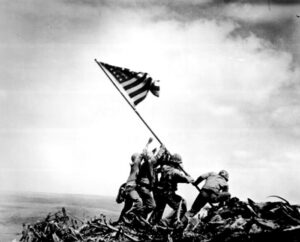
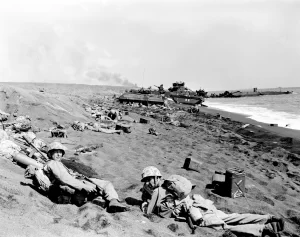 interrogated, and afterward, they took their captors to their hideout. There, to their amazement, the Americans found a cave richly stocked with canned foods, flashlights, batteries, uniforms, boots, shoes, socks, and other goods that the pair had been pilfering over the years. I’m quite sure they recognized some of the items from the base. While the Japanese soldiers did no real harm, their self-imposed secret mission had come to an end.
interrogated, and afterward, they took their captors to their hideout. There, to their amazement, the Americans found a cave richly stocked with canned foods, flashlights, batteries, uniforms, boots, shoes, socks, and other goods that the pair had been pilfering over the years. I’m quite sure they recognized some of the items from the base. While the Japanese soldiers did no real harm, their self-imposed secret mission had come to an end.
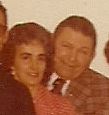
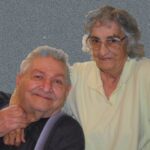 Bill Beadle became my uncle when he married my Aunt Virginia Byer. Uncle Bill was the youngest of eight children of William and Bertha (née Foster) Beadle. He was born in Worland, Wyoming, and most of his family lived there all their lives. When Uncle Bill passed away, on January 17, 2018, he was the last of the Beadle siblings. Growing up in the Worland area, which is pretty much rural Wyoming, Uncle Bill learned to love the outdoors. He loved hunting, fishing, and while hiking wasn’t as much “in style” as it is these days, I’m sure his brothers and sisters loved their outdoor adventures as much as any hiker these days.
Bill Beadle became my uncle when he married my Aunt Virginia Byer. Uncle Bill was the youngest of eight children of William and Bertha (née Foster) Beadle. He was born in Worland, Wyoming, and most of his family lived there all their lives. When Uncle Bill passed away, on January 17, 2018, he was the last of the Beadle siblings. Growing up in the Worland area, which is pretty much rural Wyoming, Uncle Bill learned to love the outdoors. He loved hunting, fishing, and while hiking wasn’t as much “in style” as it is these days, I’m sure his brothers and sisters loved their outdoor adventures as much as any hiker these days.
Another aspect of growing up in Worland, Wyoming is that most of the folks that lived there were, if not farmers and ranchers, then at the very least, cowboys. Uncle Bill was a cowboy all the way. He loved everything about the cowboy lifestyle, and especially the “Old West” which was his favorite era. I think that he could imagine himself living in that era all his life…especially in his childhood, but then, what little boy doesn’t want to be a cowboy. I know that all the little boys I know love cowboy boots, horses, and guns. It’s the simply the cowboy way of doing things, and he loved it.
Along with his cowboy values, came a desire to make sure that the nephews stayed on the right track, and if they had problems, or it looked like they were heading in the wrong direction, he would sit down with them and after talking to them a while, he could have them turned around and back in line. It was this aspect of Uncle Bill’s personality that endeared him to my cousin, Elmer. He was a successful businessman, and it was the same values that he taught the nephews that made him good at what he did. Uncle Bill spent much of his working life in the pipe yards. Then he decided to start his own rathole drilling business with his sons, Forrest and Steve by 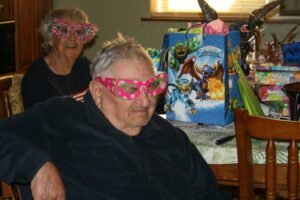 his side. While Uncle Bill was a great machinist and general all-around mechanic, his really felt alive when he was fishing and bird hunting in the Worland area with his son, Steve. I can imagine he and Steve spent a lot of time talking about their fishing trips and the times they had walked the fields hunting for Pheasant and Chukars. He loved those treks into the woods waiting for that unexpected bird to fly up out of nowhere. The hunter had just seconds to respond, and would be successful, only if he was a great hunter…and Uncle Bill was a great hunter. Today would have been Uncle Bill’s 95th birthday. I’m sure he’s out hunting (minus the gun) or riding a horse somewhere, having the time of his life. Happy birthday in Heaven, Uncle Bill. We love and miss you very much.
his side. While Uncle Bill was a great machinist and general all-around mechanic, his really felt alive when he was fishing and bird hunting in the Worland area with his son, Steve. I can imagine he and Steve spent a lot of time talking about their fishing trips and the times they had walked the fields hunting for Pheasant and Chukars. He loved those treks into the woods waiting for that unexpected bird to fly up out of nowhere. The hunter had just seconds to respond, and would be successful, only if he was a great hunter…and Uncle Bill was a great hunter. Today would have been Uncle Bill’s 95th birthday. I’m sure he’s out hunting (minus the gun) or riding a horse somewhere, having the time of his life. Happy birthday in Heaven, Uncle Bill. We love and miss you very much.
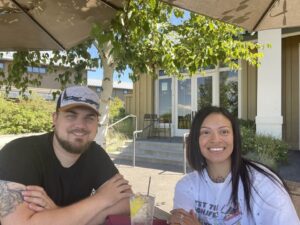
 My niece, Gaby Beach is a nurse at the Veteran’s Hospital in Eugene, Oregon. She loves her work. Being a veteran herself, Gaby has a heart for veterans. In her work, she deals various ailments, disabilities, and emotional needs the veterans. I’m sure that any nurse could go in and take care of the needs of the bodies of the veterans in Eugene, Oregon, or any veteran’s hospital, but it occurs to me that a nurse who is also a veteran, would have a unique connection to the needs of the men and women themselves…not just their bodies. I think that is where Gaby is maybe the best nurse they could have at that hospital.
My niece, Gaby Beach is a nurse at the Veteran’s Hospital in Eugene, Oregon. She loves her work. Being a veteran herself, Gaby has a heart for veterans. In her work, she deals various ailments, disabilities, and emotional needs the veterans. I’m sure that any nurse could go in and take care of the needs of the bodies of the veterans in Eugene, Oregon, or any veteran’s hospital, but it occurs to me that a nurse who is also a veteran, would have a unique connection to the needs of the men and women themselves…not just their bodies. I think that is where Gaby is maybe the best nurse they could have at that hospital.
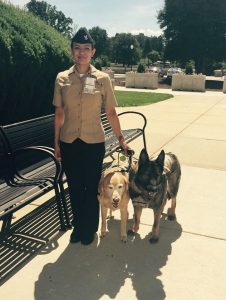
Gaby has a good heart. She loves dogs and has trained them to visit hospitals. The dogs help bring healing through those visits. It’s an emotional thing. Dogs have been known to lower blood pressure, reduce stress and anxiety, promote healing, provide comfort during tests and procedures, and provide companionship and comfort to patients and even to the staff. The thing is that these dogs must be trained to do their work. It isn’t something that comes totally naturally. Yes, the compassion is there, but the mannerisms aren’t. They must be taught how to treat a patient and how to behave in a hospital setting. That was where Gaby and others like her came in. I wonder if the Veteran’s Hospital in Eugene uses dogs as part of the therapy. If they do, it would be almost like coming full circle for Gaby. She loved those dogs. I could see it in her face when she told me about the kind of work she did with the dogs.
These days, Gaby and her husband, my nephew, Allen Beach have their own fur baby…in the form of a cute pup named Oly. Gaby and Allen love to hike and travel. They recently took a trip with Allen’s mom, Caryl Reed, and Stepdad, Mike Reed. They traveled along the Oregon coast, and really enjoyed getting to know the area they now call home. They moved to Oregon from Wyoming a little over a year ago, but when you live in a place, you don’t always do all of the touristy things. 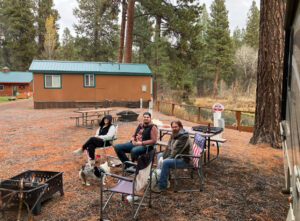
 They did some hiking in the area, but now, they are looking forward to taking more trips to the places they visited with Allen’s parents. They are settling in well to their new home, and they are very happy there, even if Allen says they lead boring lives. I guess everyone settles into a routine, and it could seem boring, but as long as they are happy, that is all that matters. Today is Gaby’s birthday. Happy birthday Gaby!! Have a great day!! We love you!!
They did some hiking in the area, but now, they are looking forward to taking more trips to the places they visited with Allen’s parents. They are settling in well to their new home, and they are very happy there, even if Allen says they lead boring lives. I guess everyone settles into a routine, and it could seem boring, but as long as they are happy, that is all that matters. Today is Gaby’s birthday. Happy birthday Gaby!! Have a great day!! We love you!!

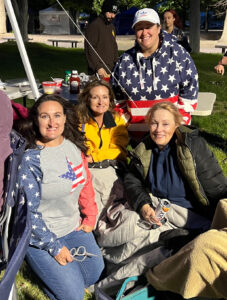 My niece, Toni Chase feels like this has been a rather uneventful year for her and her family. She and her husband, Dave Chase, but her sister, Chantel has a very different take on Toni and Dave have been up to this year. Chantel says, “Toni has begun a great renovation adventure. They have a regular contractor who has says he’s willing to train her on her days off. She has been learning, to texturize walls? and I believe she has already learned how frustrating and expensive renovation can be! Everyone already knows this stuff to some extent, but she has such a can do spirit that she just researches more and tries again! She’s always been a hard worker, so I know she’ll work hard until she gets it right!” The renovation Chantel is referring to is a rental house that Toni and Dave own, that will now be sold to her son, James and his wife, Manuela. The house was already very nice, but like all house built in the 1950s, and any year really, there are always repairs and other updates that needed to be done for the sale. These days, pretty much everyone likes the “open concept” style of home, and while I’m not sure I am totally onboard with that, I can see the value. Chantel is right about Toni’s “can-do” spirit. She looks at challenges as a new skill to be conquered and mastered. She takes the necessary steps to become an expert in the field, and boom…she has mastered it. Toni didn’t even consider the renovation as noteworthy, but she was very pleased that her big sister did.
My niece, Toni Chase feels like this has been a rather uneventful year for her and her family. She and her husband, Dave Chase, but her sister, Chantel has a very different take on Toni and Dave have been up to this year. Chantel says, “Toni has begun a great renovation adventure. They have a regular contractor who has says he’s willing to train her on her days off. She has been learning, to texturize walls? and I believe she has already learned how frustrating and expensive renovation can be! Everyone already knows this stuff to some extent, but she has such a can do spirit that she just researches more and tries again! She’s always been a hard worker, so I know she’ll work hard until she gets it right!” The renovation Chantel is referring to is a rental house that Toni and Dave own, that will now be sold to her son, James and his wife, Manuela. The house was already very nice, but like all house built in the 1950s, and any year really, there are always repairs and other updates that needed to be done for the sale. These days, pretty much everyone likes the “open concept” style of home, and while I’m not sure I am totally onboard with that, I can see the value. Chantel is right about Toni’s “can-do” spirit. She looks at challenges as a new skill to be conquered and mastered. She takes the necessary steps to become an expert in the field, and boom…she has mastered it. Toni didn’t even consider the renovation as noteworthy, but she was very pleased that her big sister did.
Toni’s husband, Dave has a laid-back attitude that Chantel says, “is perfect for Toni.” My sister, Cheryl, Toni’s 
 mom, says “Dave is perfect for Toni, but I think practical, sensible, funny and tolerant describes him way better! He’s a busy man, and I’m not sure “laid back” fits him!” Of course, the opinion on what is “laid-back” could be different. Dave is motivated and hardworking, but he is also easy to get along with and accepting of others, and I think maybe that is what Chantel meant. In a marriage, the two partners have to be accepting of the quirks of their partner, or they will always be a little bit at odds with one another. Toni is a sweet girl, and she has her own style and ideas. Dave wouldn’t want it any other way. Dave and Toni like to let each be their own person, and it works out quite well for them. They love each other for keeps, and that’s why they make a beautiful couple.
mom, says “Dave is perfect for Toni, but I think practical, sensible, funny and tolerant describes him way better! He’s a busy man, and I’m not sure “laid back” fits him!” Of course, the opinion on what is “laid-back” could be different. Dave is motivated and hardworking, but he is also easy to get along with and accepting of others, and I think maybe that is what Chantel meant. In a marriage, the two partners have to be accepting of the quirks of their partner, or they will always be a little bit at odds with one another. Toni is a sweet girl, and she has her own style and ideas. Dave wouldn’t want it any other way. Dave and Toni like to let each be their own person, and it works out quite well for them. They love each other for keeps, and that’s why they make a beautiful couple.
Toni and Dave often take trips to Centennial, Wyoming, where they get together with Dave’s mom, brother, and sister. They took a couple of trips there this year. Centennial is a beautiful area, and they love each visit with family. Toni and Dave really love to travel, and they take several trips each year. In May, they took a trip to Marco Island in Florida. They plan was just to relax by the seashore and see some of the sites down there. Toni says that their lives are “happy, but boring.” I always find that amazing, because what people think is boring 
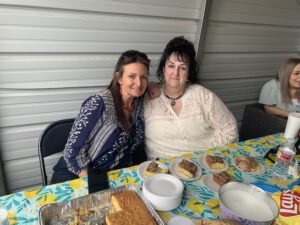 and everyday stuff, often appeals to other people. If you consider the “Little House on the Prairie” books or “Anne of Green Gables” you would find that these were simply books about life, and as my Aunt Bertha Hallgren quoted in her writings, “I love losing myself in other men’s minds.”. Sometimes, the most interesting things happen in the seemingly “mundane” lives of other people. Today is Toni’s birthday. Happy birthday Toni!! Have a great day!! We love you!!
and everyday stuff, often appeals to other people. If you consider the “Little House on the Prairie” books or “Anne of Green Gables” you would find that these were simply books about life, and as my Aunt Bertha Hallgren quoted in her writings, “I love losing myself in other men’s minds.”. Sometimes, the most interesting things happen in the seemingly “mundane” lives of other people. Today is Toni’s birthday. Happy birthday Toni!! Have a great day!! We love you!!
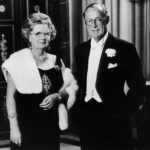 During World War II, a number of royal families considered leaving their countries for a time, due to potential dangers to them and their families. Many of the royals decided that they shouldn’t leave. As for Prince Bernhard, husband of Crown Princess Juliana was serving in the Royal Airforce. It was thought that Princess Juliana, and her daughters would be safer in Canada, so they relocated in in June of 1940. In the years she was there, the couple became pregnant with their third child, who would now be born in Canada, unless something drastically changed.
During World War II, a number of royal families considered leaving their countries for a time, due to potential dangers to them and their families. Many of the royals decided that they shouldn’t leave. As for Prince Bernhard, husband of Crown Princess Juliana was serving in the Royal Airforce. It was thought that Princess Juliana, and her daughters would be safer in Canada, so they relocated in in June of 1940. In the years she was there, the couple became pregnant with their third child, who would now be born in Canada, unless something drastically changed.
With the relocation of the royal family, and now the impending birth, which could, I suppose cause a bit of a problem like the one that exists in the United States, when a child who could later go on to run for president, is born in another country. Our law requires that the child be born on US soil, like a military base or something. Of course, that may not be the law in the Netherlands, but whatever the case may be, the Canadian government was compelled to do something anyway. So, the decision was made that in 1943, the Canadian government temporarily declared a maternity ward of Ottawa Civic Hospital to be extraterritorial. This struck me as funny, because at first glance, I thought it said extraterrestrial!! I thought, “What are they talking about??” Then, I realized that my first glance had been  deceiving. I suppose that is good news for the royal family of the Netherlands, who would not be the parents of an alien from outer space.
deceiving. I suppose that is good news for the royal family of the Netherlands, who would not be the parents of an alien from outer space.
Comedy aside, this change was made because Dutch princess Margriet was to be born at the maternity ward of Ottawa Civic Hospital. With this change, the maternity ward suddenly fell outside of the Canadian domain, causing it to be unaffiliated with any jurisdiction and technically international territory. The purpose was to ensure that the newborn would derive her citizenship from her mother only, thus making her solely Dutch. While this change didn’t matter much since Princess Margriet was a girl, and thereby third in line for the throne. It could have been very important, if the child had been male, and as such, the heir of Princess Juliana. Many countries with a royal family move the sons ahead of any older sisters in the line of succession to the throne. England recently changed that law, meaning that HRH Princess Charlotte (currently 3rd) was not passed by HRH Prince Louis  (currently 4th) in the line of succession there.
(currently 4th) in the line of succession there.
The birth of Princess Margriet came about thusly. “It was the height of the Second World War, things were still not going well for the Allies, when a brief bit of good news came in the midst of darkness. The German forces had already rolled over much of Europe, smashing resistance before them, including the brave but futile defense of Holland. The Dutch Crown Princess Juliana and her two daughters had fled the German invasion and arrived in Canada in June 1940. On January 9, 1943, Dutch Princess Margriet was born at the Ottawa Civic Hospital. Crown Prince Bernhard came from London where he was serving with the Royal Air Force, to be present for the birth. The Royal Family returned to Holland shortly after the war.”
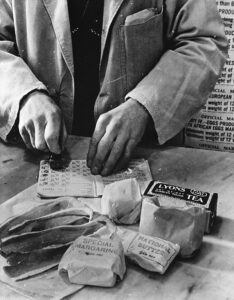
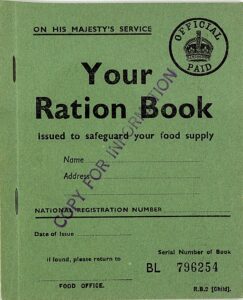 When my dad, Staff Sergeant Allen Spencer, was serving in the Army Air Force during World War II, rationing was not an unusual thing. Nevertheless, most of us think of rationing to be in the form of gas rationing. That is pretty much the kind of rationing we have heard being used these days, but on January 8, 1941, the government of the United Kingdom began a different kind of rationing…food. I can see the value of such a thing, because by limiting the amount of food each person could have, they could ensure that everyone was able to get enough food to sustain them. People weren’t going to gain weight on the amount of food allowed, but they could survive. I suppose the fact that there were so many extra people, in the form of the military forces, just added to the need to ration.
When my dad, Staff Sergeant Allen Spencer, was serving in the Army Air Force during World War II, rationing was not an unusual thing. Nevertheless, most of us think of rationing to be in the form of gas rationing. That is pretty much the kind of rationing we have heard being used these days, but on January 8, 1941, the government of the United Kingdom began a different kind of rationing…food. I can see the value of such a thing, because by limiting the amount of food each person could have, they could ensure that everyone was able to get enough food to sustain them. People weren’t going to gain weight on the amount of food allowed, but they could survive. I suppose the fact that there were so many extra people, in the form of the military forces, just added to the need to ration.
Of course, some food rationing occurred before this date too. Rationing was introduced temporarily by the government of the United Kingdom several times during the 20th century, during and immediately after a war. At the start of World War II in 1939, the United Kingdom was importing 20 million long tons of food per year, including about 70% of its cheese and sugar, almost 80% of its fruit and about 70% of its cereals and fats. It also imported more than half of its meat and relied on imported feed to support its domestic meat production. The civilian population of the country alone, was about 50 million. It was one of the principal strategies of the Germans in the Battle of the Atlantic to attack shipping bound for Britain, restricting British industry and 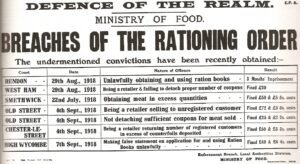 potentially starving nations into submission. Siege tactics were not unusual and have been used throughout history by several countries.
potentially starving nations into submission. Siege tactics were not unusual and have been used throughout history by several countries.
So, to deal with the various forms of shortages, and sometimes extreme shortages, the Ministry of Food instituted a system of rationing. Basically, the Ministry of Food would buy most rationed items, forcing anyone who wanted some of these items to register at chosen shops. Upon registration, they were provided with a ration book containing coupons. The shopkeeper was provided with enough food for registered customers. Purchasers had to present ration books when shopping so that the coupon or coupons could be cancelled as these pertained to rationed items. Rationed items had to be purchased and paid for as usual, although their price was strictly controlled by the government and many essential foodstuffs were subsidized. Basically, rationing restricted what items and what amount could be purchased, as well as what they would cost. To make matters worse the items that were not rationed could be scarce, because the Ministry of Food did not purchase said items. The priced for some of the unrationed items were also controlled by the Ministry of Food, and for many people those prices were too high for them to be able to afford, causing people to try to cheat the system, and merchants to try to either assist the people or to gouge the public in order to make a buck. This brought penalties for 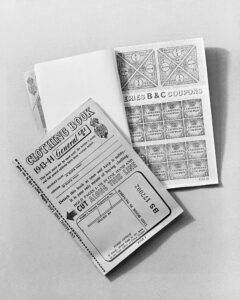
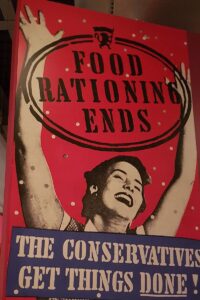 breaking the laws of rationing.
breaking the laws of rationing.
During the World War II, rationing was not restricted to food, and was part of a strategy including controlled prices, subsidies, and government-enforced standards. The goal for this controlled pricing and rationing was to manage scarcity and prioritize the armed forces and essential services with the supplies they needed first. They did still try to make available to everyone, an adequate and affordable supply of goods of acceptable quality. I suppose that how well they accomplished their goal, would be a matter of opinion. Of course, like all wars, World War II ended, as did the rationing of the time, but rationing has returned a number of times, and will again, should the need arise.

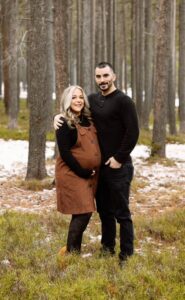 This past year has been such an exciting year for my grandniece, Siara Kirk. Siara got married to her husband Chris on July 23, 2022, and they have been so happy. Still, they knew that their lives needed something more…a family. With that goal in mind, Siara and Chris began planning their future. Things moved along quickly, as you might expect, and by May, they were expecting a sweet baby boy, though they didn’t know it at that time…that news came at the end of June. For any of you who don’t know, Siara lost her son, Alec on January 25, 2020, so this baby is her “Rainbow Baby” and Chris’ first child.
This past year has been such an exciting year for my grandniece, Siara Kirk. Siara got married to her husband Chris on July 23, 2022, and they have been so happy. Still, they knew that their lives needed something more…a family. With that goal in mind, Siara and Chris began planning their future. Things moved along quickly, as you might expect, and by May, they were expecting a sweet baby boy, though they didn’t know it at that time…that news came at the end of June. For any of you who don’t know, Siara lost her son, Alec on January 25, 2020, so this baby is her “Rainbow Baby” and Chris’ first child.
With the addition of their new son, came the need for a bigger place to live, and when the house next door to Siara’s parents, Chantel and Dave Balcerzak, came available, they jumped at the chance. The two couples are more than parents and children, they are best friends too, so the house next door is a great blessing. I’ve always thought that it would be cool to have grandchildren who could just pop in at my house periodically to play. Siara and Chris’ son will have that kind of relationship with his grandparents. I am so excited for all of them to be able to have this kind of special relationship with each other, and with the future grandbabies.

 With the purchase of the house, which gave them lots of room to grow, also came a few projects…mostly painting, but not all painting. Some of the rooms had some wild color choices, so they had to do multiple coats to fully cover them. With Siara being pregnant, she was unable to help in the painting, due to the fumes. So, Siara and her mom worked on simply getting the decorations together. They did a beautiful job. They were, of course, under a bit of a time crunch, because by the time they bought the house in early October, the time until the baby arrives was already getting short. They quickly got to work flipping the house to make it their own, and by the time of the housewarming/baby shower, they were done. It is a beautiful home, and now everything is ready for Baby Kirk to arrive by the 15th of this month. Several of us had hoped for a New Year’s Baby, which would also make it on Siara’s great grandma, Collene Spencer’s birthday, but that was not to be. I
With the purchase of the house, which gave them lots of room to grow, also came a few projects…mostly painting, but not all painting. Some of the rooms had some wild color choices, so they had to do multiple coats to fully cover them. With Siara being pregnant, she was unable to help in the painting, due to the fumes. So, Siara and her mom worked on simply getting the decorations together. They did a beautiful job. They were, of course, under a bit of a time crunch, because by the time they bought the house in early October, the time until the baby arrives was already getting short. They quickly got to work flipping the house to make it their own, and by the time of the housewarming/baby shower, they were done. It is a beautiful home, and now everything is ready for Baby Kirk to arrive by the 15th of this month. Several of us had hoped for a New Year’s Baby, which would also make it on Siara’s great grandma, Collene Spencer’s birthday, but that was not to be. I 
 suppose there is still time for him to come on Siara’s birthday, since she has to have a Caesarian delivery, but again he is going to have to get busy. Either way, he will arrive when he’s ready or on the scheduled date for the Caesarian which ever it happens to be. Baby birthday or not, today is Siara’s 30th birthday. Happy birthday Siara!! Have a great day!! We love you!!
suppose there is still time for him to come on Siara’s birthday, since she has to have a Caesarian delivery, but again he is going to have to get busy. Either way, he will arrive when he’s ready or on the scheduled date for the Caesarian which ever it happens to be. Baby birthday or not, today is Siara’s 30th birthday. Happy birthday Siara!! Have a great day!! We love you!!

 As kids grow up, you suddenly find yourself looking at a whole new person. It’s not just the normal changes that happen as kids grow, like height and a new grown up look about them. Suddenly, they have interests that are very different than yours. Sometimes that could be a bad thing, but for my grandnephew, Ethan Hadlock those new interests are different than many kids his age. Ethan is really into history, and especially World War I. History is often the last thing kids are interested in, but for Ethan, history and especially World War I are the coolest things. He even wanted his friend birthday party to have a World War I theme. His mom, Chelsea Hadlock did a great job creating that for him.
As kids grow up, you suddenly find yourself looking at a whole new person. It’s not just the normal changes that happen as kids grow, like height and a new grown up look about them. Suddenly, they have interests that are very different than yours. Sometimes that could be a bad thing, but for my grandnephew, Ethan Hadlock those new interests are different than many kids his age. Ethan is really into history, and especially World War I. History is often the last thing kids are interested in, but for Ethan, history and especially World War I are the coolest things. He even wanted his friend birthday party to have a World War I theme. His mom, Chelsea Hadlock did a great job creating that for him.
Ethan is the grandson of a retired cop, my brother-in-law, Chris Hadlock and an uncle who is a cop, Jason Sawdon, so security is important to him. With that in mind, Ethan has joined the club Cyber Patriots which teaches kids to check websites and things for cyber security threats. I think that is an amazing club to have. These kinds of threats are a very real part of life these days, and everyone needs to know about it, especially kids. Ethan is also in a welding class right now and he really loves it! That isn’t surprising either, considering his great grandpa, my dad, Allen Spencer was a welder by trade. Christmas brought Ethan a couple of new horizons to try. He was give golf lessons, and he can’t wait to start them and learn the game of golf. He also 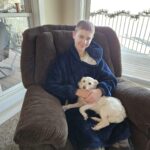
 received a World War I tiger tank Lego set. It is an RC car that he will have to put together. He can’t wait to get going on that. Everyone loves Legos, and Ethan is no exception. He’s really good at Rubik’s cubes too! He can put them right really quickly!!
received a World War I tiger tank Lego set. It is an RC car that he will have to put together. He can’t wait to get going on that. Everyone loves Legos, and Ethan is no exception. He’s really good at Rubik’s cubes too! He can put them right really quickly!!
Ethan loves animals. The Hadlock family is a family of “dog lovers” and Ethan loves all of them. He is always willing to help with the animals, whether it is feeding them, playing with them, or chasing them down when they don’t want to come in the house. Recently, his aunt, Kellie Hadlock hired him to watch her bird. Ethan quickly accepted the job, but really thought it was a volunteer job. When Kellie paid him, he was so thankful that he honestly thanked her every time he saw her for like a week!! It was so sweet! Ethan is no stranger to volunteer work either. Each summer, he volunteers at the Vacation Bible School at his Aunt Lindsay Moore’s church in Laramie! He always works in the recreation area and gets to do things like shoot water rockets!! He always has a blast!! Being the only boy among the cousins, Ethan is always ready to take care of all his cousins too! He watches out for them!
Now that Ethan is 15 years old, he is ready to take his drivers ed test!! He is very excited about learning to drive. He and his mom went to get his study books a while back, and he is ready for the test on Monday. I can’t 
 believe that this sweet boy, who picks on everyone just like his dad, Ryan Hadlock, but is always ready to give a hug to anyone in the family, and even seeks out the family for a hug, is old enough to learn to drive. While it may seem impossible in years, it isn’t surprising in size. Ethan is already well on his way to gaining the height of his dad and grandpa, who are both well over six foot. Ethan is close to six foot now, and with a number of years to grow yet. Today is Ethan’s 15th birthday. Happy birthday Ethan!! Have a great day!! We love you!!
believe that this sweet boy, who picks on everyone just like his dad, Ryan Hadlock, but is always ready to give a hug to anyone in the family, and even seeks out the family for a hug, is old enough to learn to drive. While it may seem impossible in years, it isn’t surprising in size. Ethan is already well on his way to gaining the height of his dad and grandpa, who are both well over six foot. Ethan is close to six foot now, and with a number of years to grow yet. Today is Ethan’s 15th birthday. Happy birthday Ethan!! Have a great day!! We love you!!
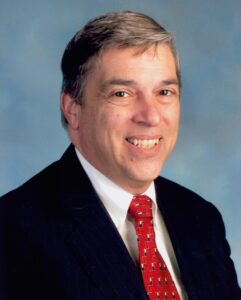
 When the FBI began to suspect that they had a mole in the mid-1980s, they assigned the investigation to FBI Agent Robert Philip Hanssen. Hanssen was born April 18, 1944, in Chicago, Illinois, to a Lutheran family that lived in the Norwood Park neighborhood. He was of Norwegian descent. His father, Howard, who died 1993, was a Chicago police officer, and was allegedly emotionally abusive to Hanssen during his childhood. Nevertheless, Hanssen went on to graduate from William Howard Taft High School in 1962 and attended Knox College in Galesburg, Illinois. He graduated with a bachelor’s degree in chemistry in 1966. Hanssen joined the FBI in 1976. Things were going well for him in the FBI, but then, something changed.
When the FBI began to suspect that they had a mole in the mid-1980s, they assigned the investigation to FBI Agent Robert Philip Hanssen. Hanssen was born April 18, 1944, in Chicago, Illinois, to a Lutheran family that lived in the Norwood Park neighborhood. He was of Norwegian descent. His father, Howard, who died 1993, was a Chicago police officer, and was allegedly emotionally abusive to Hanssen during his childhood. Nevertheless, Hanssen went on to graduate from William Howard Taft High School in 1962 and attended Knox College in Galesburg, Illinois. He graduated with a bachelor’s degree in chemistry in 1966. Hanssen joined the FBI in 1976. Things were going well for him in the FBI, but then, something changed.
In 1979, just three years after joining the FBI, Hanssen approached the Soviet Main Intelligence Directorate (GRU) to offer his services. It is thought that he may have had some financial difficulties, and this meeting became the beginning of his first espionage cycle, lasting until 1981. After that, he laid low for a while. Then, in 1981, he restarted his espionage activities and continued until 1991. After that, he ended communications during the collapse of the Soviet Union, because he was afraid that he would be exposed. Hanssen restarted communications the next year and continued until his arrest. Throughout his spying, he remained anonymous to the Russians.
Hanssen spied for Soviet and Russian intelligence services against the United States from 1979 to 2001. His espionage was described by the Department of Justice as “possibly the worst intelligence disaster in US history.” In all, he sold about six thousand classified documents to the KGB that detailed US strategies in the event of nuclear war, developments in military weapons technologies, and aspects of the US counterintelligence program. Hanssen was involved in espionage at the same time as Aldrich Ames in the Central Intelligence Agency (CIA). Both Ames and Hanssen compromised the names of KGB agents working secretly for the United States. Some of those KGB agents were executed for their betrayal. Hanssen also revealed a multimillion-dollar eavesdropping tunnel built by the FBI under the Soviet Embassy. Then in 1994, Ames was arrested. At that time, some of these intelligence breaches remained unsolved, so the search began for another spy. Ironically, they chose the spy himself to search for the spy. How convenient it was for Hanssen. Finally, the FBI paid $7 million to a KGB agent to obtain a file on an anonymous mole. That information led to Janssen’s exposure, when he was identified through fingerprint and voice analysis.
On February 18, 2001, Hanssen was arrested at Foxstone Park, near his home in the Washington DC, suburb of 
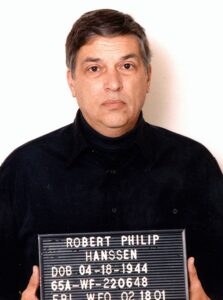 Vienna, Virginia, after leaving a package of classified materials at a dead drop site. Following his arrest, he was charged with selling US intelligence documents to the Soviet Union and subsequently Russia for more than $1.4 million in cash, diamonds, and Rolex watches over a period of twenty-two years. Hanssen pleaded guilty to fourteen counts of espionage and one of conspiracy to commit espionage, to avoid the death penalty. He was sentenced to fifteen life terms without the possibility of parole and was incarcerated at ADX Florence until his death on June 5, 2023.
Vienna, Virginia, after leaving a package of classified materials at a dead drop site. Following his arrest, he was charged with selling US intelligence documents to the Soviet Union and subsequently Russia for more than $1.4 million in cash, diamonds, and Rolex watches over a period of twenty-two years. Hanssen pleaded guilty to fourteen counts of espionage and one of conspiracy to commit espionage, to avoid the death penalty. He was sentenced to fifteen life terms without the possibility of parole and was incarcerated at ADX Florence until his death on June 5, 2023.

